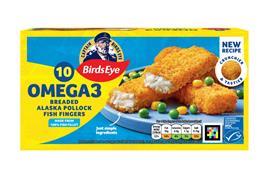- Home
- Retail & Wholesale
-
Products & Suppliers
- Back to parent navigation item
- Products & Suppliers
-
Product Categories:
- Back to parent navigation item
- Product Categories:
- Alcoholic drinks
- Bakery
- Cereals & breakfast
- Cheese
- Chicken & poultry
- Chocolate
- Confectionery
- Crisps, nuts & snacks
- Dairy
- Fish
- Fresh produce
- Frozen
- Household
- Meat
- Own Label
- Sauces & condiments
- Seasonal
- Soft drinks
- Vaping
- Vegan & plant-based
- World foods
- Suppliers
- People
- Reports & Data
-
Topics A-Z
- Back to parent navigation item
- Topics A-Z
-
Popular topics:
- Back to parent navigation item
- Popular topics:
- Cost of living crisis
- Crime
- Deposit Return Schemes
- Finance
- Government & Regulation
- Health
- Inflation
- Loyalty
- Marketing
- Mergers & Acquisitions
- New Product Development
- Sourcing
- Supply chain
- Sustainability & environment
- Technology
- Ultra Processed Foods
- Vaping
- A-Z all topics
- Content by type:
- Events
- Ask iA (beta)
- Subscribe now
How Surya Foods built a world foods empire, one cuisine at a time
By Dene Mullen2025-10-24T13:03:00

After turning Thai Dragon sriracha and Laila rice into mainstream brands, Surya CEO Harry Dulai is betting big on Korean, African and Indo-Chinese
For Harry Dulai, doing business is all about family. His father arrived on these shores from India in December 1965 with £3 to his name and worked odd jobs while getting a series of market stalls off the ground.
“As his business grew, me and my brother were there. That’s how we’ve learned business,” says Dulai, now group CEO of what has become Surya Foods. “Business is in my family’s blood, and being part of a family business teaches you more than anything else.”
Over the intervening decades, Surya Foods has grown into one of the UK’s largest suppliers of world foods, with turnover hitting more than £250m in 2024.
Already have an account? Sign in here
Already have an account? Sign in here





